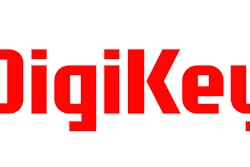
Offering value-added services should be integral to any distribution company’s business model. Value-added services go beyond the immediate delivery of goods and provide additional customer benefits. These services can range from providing technical support to offering customized packaging solutions. By offering value-added services, distribution companies can increase customer satisfaction, build loyalty, and make customer relationships sticky. This can lead to increased sales and profits over time.
One of the essential benefits of offering value-added services is that it helps to differentiate a company from its competitors. With manufacturers deploying disintermediation strategies, the emergence and growth of large e-commerce platforms, and larger competitors, competition is fierce. A company can stand out from the competition by providing a greater range of additional services. This can be especially beneficial for smaller companies needing more resources to compete with larger companies on price.
Examples of value-added services include:
- Customized packaging – Companies can offer customized packaging to meet the needs of their customers. This could include specialized boxes, labels, and other materials.
- Technical support – Companies can provide technical and expert support to customers that need help. This could include advising customers on how to use a product or troubleshooting any issues that arise during use.
- Kitting, assembly, and light manufacturing – The kitting process combines multiple products into a simple, easy-to-pick-and-use package. The process works by combining commonly purchased products into a separate sellable SKU. Assembly takes different components and builds sellable units. Light manufacturing can start with a stock product and modify it to suit the customer’s needs. This allows the distributor to stock fewer product variations, freeing up space and capital. Providing these services can increase sales and drive customer loyalty.
- Vendor managed inventory – VMI is a service that is mutually beneficial to the customer and the distributor. With VMI, inventory is housed at the customer’s location but is managed by the distributor. This can take several different forms, from bins to vending machines. With commonly used items like gloves, safety knives, replacement blades, and eye and ear protection, vending machines can be kept on the customer site to ensure each employee has the tools needed to do their job. Employees no longer need to track down a supervisor to unlock a cabinet to get these consumables. Customers can monitor the use of the consumables to track spending. The customer can purchase cases ahead of time or pay for them as they are consumed. As items are consumed, additional items can be auto-ordered without human intervention.
- Rental and service – Distributors can rent items to customers that do not wish to purchase them. High-value and seldomly used tools are commonly rented. Customers will rent long- or short-term based on their business models. Field service can be provided to customers that purchase equipment but do not have the expertise to service it themselves.
A best-in-class industry-specific enterprise resource planning (ERP) solution is critical for efficiently delivering value-added services. Distributors face supply chain disruption, aggressive competition, and labor shortages, which make providing the products and services people desire increasingly challenging.
During a recent conversation with Tom Naber, president of the National Association of Electrical Distributors (NAED), I asked: “Do you think it is important for modern distributors to differentiate themselves by offering value-added services, and why?” Tom replied: “I absolutely believe that. Not too long ago, having the right product was the main thing a contractor or end-user expected from a distributor. After that, the contractors, in particular, were looking for a line of credit and some technical expertise. Today, contractors and industrial customers are not only facing financial pressures but also labor and product shortages. At the same time, the end-users want that Amazon-like experience, which involves much more technical and digital expertise than most contractors are equipped to provide. They need help not only to become more efficient but to provide a better end-user experience to their customers. As for industrial customers, many are already more technically sophisticated and are looking for both products and services from their distributors. Value-added services are not only going to be expected by contractors and industrial buyers, they will be what differentiates one distributor from another. The distributors that provide them and get really good at delivering them will become much more integrated into a customer’s operations and functions. It also will change the conversation that a distributor has with the customer. The efficiency and the cost reductions that the distributor provides are becoming as important as the product price.”
These are just a few examples of value-added services that industrial distributors can offer. By providing these services, companies can increase customer satisfaction, build loyalty, and ultimately increase profits.
Will Quinn is the director of industry solution and strategy at Infor.






















